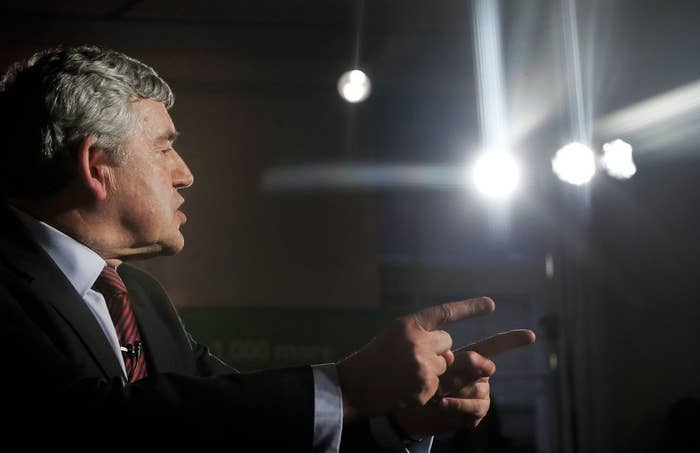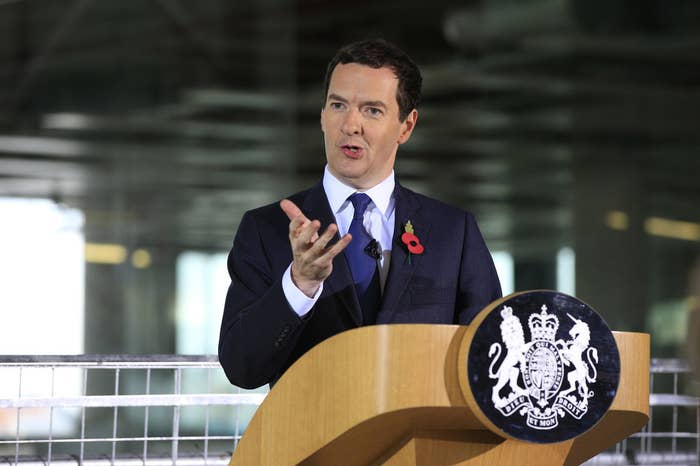
Gordon Brown has warned Jeremy Corbyn that he must make Labour "popular, electable, and credible" to protect the country's poorest from the government's "anti-family" welfare cuts.
In his first major intervention in UK politics since the general election, the former prime minister said it was "normal" for a party that had suffered a resounding election defeat to try and return to its founding principles, but warned that "you cannot deliver principles without power".
Brown urged Corbyn to make Labour a credible force to prevent millions of children from being plunged into poverty by Conservative welfare cuts, and condemned chancellor George Osborne's proposed tax credit reform as "anti-work, anti-family, anti-children, anti-women, anti-fairness" and "an attack on British values".
"If you look at what's happening in Britain today, it's normal that if you lose two elections a party will want to return to first principles," Brown said. "It will want to emphasise that power is not for its own sake, power has to be based on those principles. They will want to emphasise that politics is not just the art of the possible, it is about making the desirable possible.
"But they will want also to think of this: that while you can't deliver policies without principles, you cannot deliver principles without power. You have to quickly move to a stage where, emphasising your principles, you build a programme, then call for popular support – making the desirable possible requires making the desirable popular, electable, credible, and something that people want to hold on to."
Brown, who created the modern tax credits system during his decade as chancellor from 1997 to 2007, urged Osborne to scrap his tax credit reform in its entirety or risk dragging millions of children and working people into poverty, and said that cuts would make the UK the most unequal country in the western world.
He pointed to criticism of the reforms from backbench Conservative MPs, right-wing think-tank the Adam Smith Institute, and Iain Duncan Smith as evidence the cuts would go too far, joking: "Soon we will find that George Osborne will be against the policies of George Osborne."

Brown said the chancellor was "hurting children" with the cuts, as well as "millennial" couples in their twenties – dubbed "the new poverty generation" – who he said will become the working poor as soon as they have children.
"If these tax credit reforms go ahead, and all the other changes that are being proposed by the Conservative government that affect child poverty, then not only will the numbers of children in child poverty will rise faster than at any time in the last 50 years, but they will reach a peak in 2020 at a level that is higher than at any time during the recessions of the '70s, '80s, and '90s," said Brown.
"Even if these reforms are massaged or phased in, they are so fundamentally wrong that they will lead to a divided and more polarised society in Britain, with inequality rising faster than in any part of the Western world."
The former prime minister went on to say that the Conservatives are misleading the electorate into believing people who claim benefits are "lazy" and "workshy", and that it is "a fiction" that society is divided into "strivers versus skivers" with taxpayers on one hand and those on benefits on the other.
"What's so galling is that these reforms are totally contrary to what I call British values," he said at a Child Poverty Action Group event in Westminster. "They are antagonistic to the work ethic because they will diminish incentives to work, they will undermine personal responsibility because it is working families being hit most, and they will mean there is less compassion for children in our country which is surely one of the most features of a civilised society and marks out what I think is public opinion in Britain."
Brown urged Osborne to rethink the controversial policy or scrap it entirely following the House of Lords voting to delay the implementation of the reforms last month.
He said: "I want to suggest that these reforms cannot be phased in, or temporarily halted, without being abandoned in their entirety and replaced if we are to do justice to the poor of this country, and particularly to the millions of children now in poverty and the millions more who face poverty."
